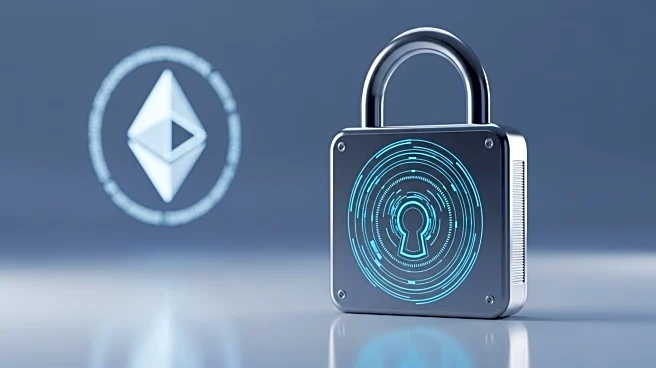What's Happening?
Poland has passed a new law regulating the crypto-asset market, with the Polish Financial Supervision Authority set to oversee compliance. Violations of the regulations will be subject to severe penalties, as reported by Rzeczpospolita daily. This legislative move coincides with the Warsaw Security Forum, where nearly 2,800 delegates from 80 countries are gathering. The forum includes a meeting of the Weimar Triangle, involving foreign ministers from Poland, France, and Germany. Discussions are expected to focus on regional security and cooperation.
Why It's Important?
The regulation of the crypto-asset market in Poland represents a significant step towards ensuring financial stability and investor protection in the rapidly evolving digital currency sector. By establishing oversight, Poland aims to prevent fraud and enhance transparency, potentially influencing other countries to adopt similar measures. The Warsaw Security Forum provides a platform for international dialogue on security issues, fostering collaboration among European nations. The involvement of the Weimar Triangle highlights the importance of regional partnerships in addressing shared challenges.
What's Next?
The implementation of crypto-asset regulations may lead to increased scrutiny and compliance requirements for businesses operating in the sector. Poland's approach could serve as a model for other countries seeking to regulate digital currencies. The outcomes of the Warsaw Security Forum may result in new security initiatives and agreements among participating nations. Continued collaboration within the Weimar Triangle could strengthen regional ties and promote joint efforts in addressing security concerns.
Beyond the Headlines
The regulation of crypto-assets raises ethical considerations regarding privacy and the balance between innovation and control. As digital currencies gain popularity, there may be debates on the role of government in regulating decentralized financial systems. The Warsaw Security Forum's focus on regional cooperation underscores the importance of diplomacy and collective action in addressing global security challenges.









